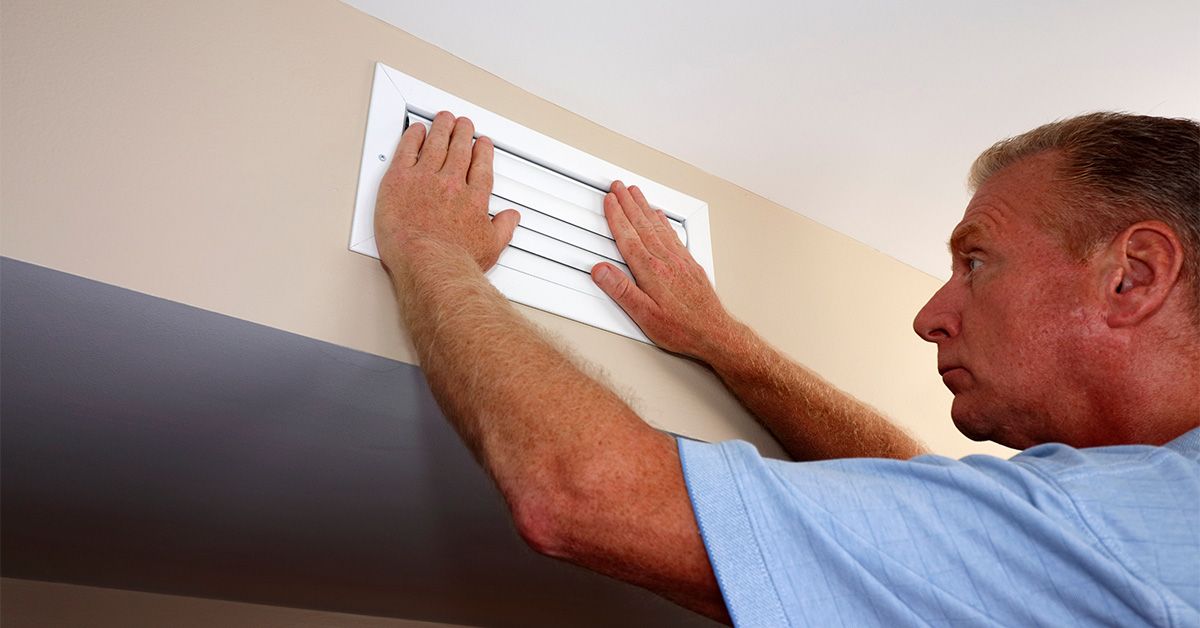Don’t Lose Money by Conforming to These Top 10 Myths About Air Conditioning

Given the state’s heat and humidity, you probably won’t be surprised to learn that the U.S. Department of Energy credits a Florida man with developing technology that “laid the foundation for modern air conditioning.” In 1851, Apalachicola physician John Gorrie was granted a patent for making ice but failed to bring his technology to market. It would take another 50 years before Gorrie’s principles would be partially adapted by the father of modern air conditioning, Willis Carrier. In the interim, Gorrie and his ideas had slipped into obscurity. However, some people believe that in 1881 engineers applied Gorrie’s ideas to cool President James A. Garfield’s White House room during the 70-plus summer days it took him to pass away after an attempted assassination. Of course, that may just be a myth.
Speaking of myths, there are quite a few misconceptions about air conditioning usage that may be costing you money if you conform to them. The HVAC experts at Tallahassee’s Air Control Heating and Cooling periodically dispel such myths when asked about them by clients. To help save you money, we will use this space to expose the top 10 myths about air conditioning.
Turning the Thermostat Way Down Cools the Home Faster
No matter how low you set your thermostat below its current temperature setting, its ability to cool your home will remain at a constant pace. And yet, many people who enter a hot and humid home will crank the temperature way down, thinking that the HVAC system will work that much harder. You’re actually better off by setting the temperature within your normal comfort range so that you don’t pay extra money for the drastic decrease in temperature caused by lowering the thermostat too far.
Bigger AC Units Provide More Effective Cooling
The “bigger the better” does not apply to air conditioning because it creates rapid temperature changes that force the compressor to work harder. Rapid temperature changes cause the compressor to turn on and off frequently, driving more energy consumption, wear and tear, and a decreased operational lifespan.
Perhaps needless to say but installing an undersized air conditioning system will lead to wasted money and energy because the system will constantly operate in an effort to cool the home. Your HVAC installer will be able to assess the perfect size AC system to cool your home effectively.
Turn the System Off When Everyone’s Gone for the Day
Many people shut down their air conditioning when the household is empty for the day. While this would seem to be an energy-saving trick, you’re better off raising the temperature by seven to 10 degrees and then readjusting it to your comfort level when people return home. AC systems that are shut down for the day tend to expend more energy bringing the temperature back to the right comfort level than systems that have been maintaining a higher temperature.
Air Filters Only Need to be Replaced Once a Year
The more your air conditioner runs, the more dust, dirt, and other debris accumulates on your system’s air filter, which forces your system to work harder and reduces its ability to improve air quality. In general, you should replace your filter according to the HVAC manufacturer’s instructions, though households with pets should inspect and replace them more frequently.
You Should Close Vents in Unused Rooms
Nope! Applying this AC myth isn’t going to save you any money. In fact, it will likely cost you money. Your system always pushes the same constant flow of air into the house, and blocking outflows creates pressure that forces your AC to work harder.
Your AC Won’t Have to Run as Much if You Use Fans
We’ll call this a partial myth because it only holds true if you raise the thermostat’s temperature when you use fans. Ceiling fans and standing fans don’t have any effect on temperature; they just circulate the air, which can make the air feel cooler. Based on that cool feeling, you should be able to raise the thermostat a bit—if not, then you’re just expending additional energy.
You Should Let Your Old AC System Die Before Replacing It
Today’s air conditioning systems are far more efficient and energy-conserving than models offered just ten to 15 years ago. While there may be more life left in such older units, purchasing a new system can save you significant money on energy and repair costs.
Thermostat Location Has No Effect on Temperature
We’re not sure how this myth arose because the thermostat’s location seems like a no-brainer with regard to its impact on temperature. Thermostats located near potential hot or cold sources—doors, windows, fireplaces, stovetops—will register temperatures that are not the norm for the rest of the home, resulting in wasted energy and increased costs. Thermostats should also be located in a central area of the house, where they will be most likely to accurately gauge the average household temperature.
Air Conditioning Causes Summer Colds
Yeah, no….
No matter what time of year, colds are caused by a virus, not cold air. If anything, air conditioning can help reduce colds and similar respiratory issues like asthma by helping clear the indoor air of allergens. Just make sure you keep your system’s air filter and ductwork clean.
Newer HVAC Systems Do Not Need Regular Checkups
While your new, high-efficiency air conditioner will undoubtedly provide you with years of cool air flow, regular maintenance checkups ensure that your HVAC system will operate with peak efficiency and the longest operational lifespan. Air Control Heating and Cooling offers three different Air Control Club maintenance plans that include regularly scheduled maintenance, inspections, and other HVAC system benefits.
Contact Air Control Heating and Cooling Today
With a 55-year history of providing outstanding HVAC service to north-central Florida homeowners and businesses, contact Air Control Heating and Cooling today at (850) 562-1234.